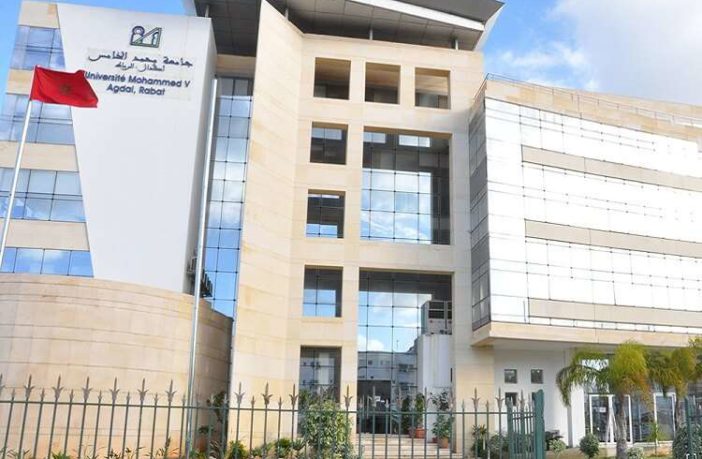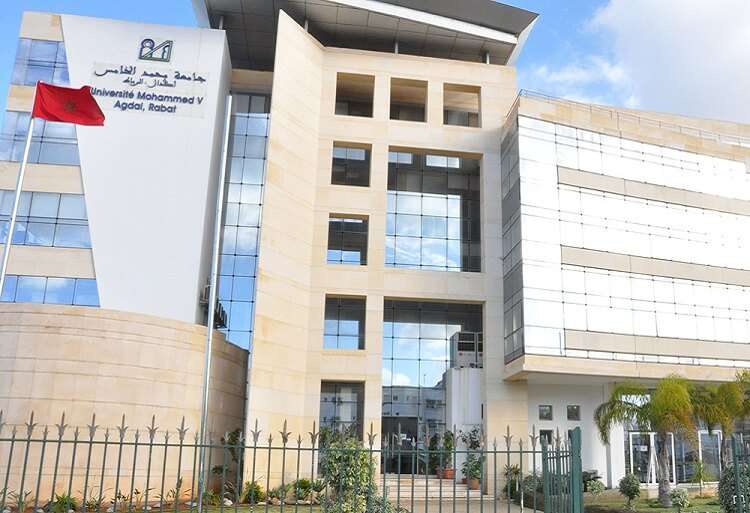University world News
Jalal Bounouar
Morocco is becoming an increasingly attractive destination for African students seeking to study abroad, and is now their second most popular destination on the continent after South Africa, a trend attributed largely to proactive government policy.
According to the latest statistics published by Morocco’s ministry of higher education, scientific research and training, more than 18,000 African foreign students are currently enrolled in higher education institutions in Morocco. These African students come from 42 countries, especially francophone countries such as Mauritania, Senegal, Côte d’Ivoire, Mali, Guinea and Gabon, but also including significant regional economies Kenya and Nigeria, said Mohammed Aboussaleh, secretary general of the ministry.
Speaking at a meeting at the faculty of medicine and pharmacy at Mohamed I University, Oujda, Aboussaleh emphasized the support and social assistance that these students receive during their university studies in Morocco.
An official at Moroccan International Cooperation Agency, the body that regulates educational and cultural co-operation between Morocco and the rest of the world, said the growth of the country’s international student body has followed proactive government policy. The Moroccan government has struck agreements with its counterparts in other African countries that provide a quota for African students interested in continuing their higher education in this north African country.
Scholarships
About 6,500 of these students currently benefit from scholarships provided by the agency. The remainder are self-financing and make private applications for places on courses in Moroccan universities and colleges, said the official. These students generally attend private higher education institutions studying languages, business, engineering and other disciplines.
The number of these foreign African students, predominantly from Sub-Saharan Africa, has been increasing annually: in 1994, this number was around 1,040 students, rising to around 5,000 in 2004 and up to 18,000 today, according to the statistics provided by the agency.
Four main reasons have encouraged these students to study in Morocco: quality and diversity of training opportunities; geographical proximity; administrative and political plus reliable social support services; and the opportunities returning students have in their home countries.
“I obtained a scholarship to study in Morocco. The same opportunities do not readily exist in other countries,” said Lake Nyos, a Cameroonian student studying marketing at the Higher Institute of Management and Technology in Casablanca.
Warm welcome
Morocco is the second choice for Senegalese students seeking overseas study, after France. Speaking to University World News, Leon Nicolas Gomez, a Senegalese teacher who secured a BA and MA in English language at Ibn Zohr University, in Agadir, and at Sidi Mohamed Ben Abdellah University, Fez, respectively, said he chose Morocco because there were many Senegalese students there for support, who had reported that Moroccans welcomed Senegalese students to their country.
“I got my baccalaureate with distinction. Then I was chosen to study in Morocco. I received quality education. The English departments in Morocco offer more varied subjects compared with those of Senegal. My level of English was higher than that of the students who studied in Senegal,” said Gomez, who, with his Moroccan higher education, has taught English professionally since returning home to Senegal where, he said, Moroccan diplomas are recognized.
Commercial links
The growth in visiting students has also been encouraged by growing commercial links between Morocco and other Africa countries. Total bilateral trade between the Maghreb country and other African states generated MAD16 billion (US$1.6 billion) in receipts last year against MAD6 billion in 2004.
These commercial links have highlighted the quality of Moroccan vocational training, which has been promoted by the Moroccan Office for Professional Training and Promotion of Work, or OFPPT, which has been trying to make the kingdom a regional hub for development, including vocational training and higher education.
Since 2002, OFPPT has signed 25 framework agreements promoting training cooperation with other African countries. This has had a direct impact regarding the office’s own work: it employs foreign Africans from 28 countries, according to data shared by the OFPPT.
The institution has developed a broad strategy to develop partnerships with African countries, welcoming their experts to Morocco to provide a diverse range of training, and helping supply trained personnel to the country’s labour market.
Exchanges
In 2014 alone, three agreements were signed with Gabon, Mali and Guinea. These concerned exchanges of students as well as trainers, managers and school directors. Moroccan office managers regularly conduct visits to other African countries to assess how Moroccan trainers can help develop these partner countries’ labour supplies.
The challenge is significant, especially in countries that have lower levels of economic development than Morocco, whose human resources are often weak. So far, more than 1,500 African trainees have been trained by the OFPPT.
Such projects and links have encouraged African students to seek private training in Morocco.
“Private vocational training attracts more and more African students since Morocco has a developed infrastructure related to this field,” said Adamou Nadja, a Nigerian trainee at the Private Institute for Nursing and Health Services in the capital Rabat.
Good relations
Sali Elie, a former student at the faculty of medicine and pharmacy at Mohammed V University, in Rabat, and now a doctor in Mali, stressed the importance of the cooperation and good relations between Mali and Morocco in providing her the opportunity to study medicine in Morocco: “It is a very welcoming country to African students and Malians in particular, and that has been true for years.”
Elie said she intends to return to Morocco to follow specialist follow-up medical training in future.
Unsurprisingly, Moroccan university professors are happy with these developments. Dr Souad Slaoui, an English teacher at Sidi Mohamed Ben Abdellah University, in Fez, said her experience of working with foreign African students was positive as they were serious, eager to learn and well disciplined.
“As to why they choose Moroccan universities, I think that they look at Morocco as a more open country for sharing knowledge and using new strategies of teaching,” said Slaoui.
Variety of courses
Jalal Zine El Abidine, a Moroccan teacher of history and civilization at the University of Hassan II Casablanca, said Moroccan universities in general – and private institutions in particular – are a preferred destination for African students thanks to easier access into the country, including immigration controls – which is not the case in some other countries, especially in Europe.
He stressed that students were also attracted by the wide variety of courses, especially in technical, trade and business majors, and modern facilities.
“Indeed, Morocco is able to provide quality education and training for these students, especially in private institutes where programmes are similar to some international institutes. There are even European and American institutes that have settled in Morocco and direct their services to this category of student,” said Zine El Abidine. Examples include SIST British University in Casablanca, and the French School of Technical Education, also in Casablanca.








